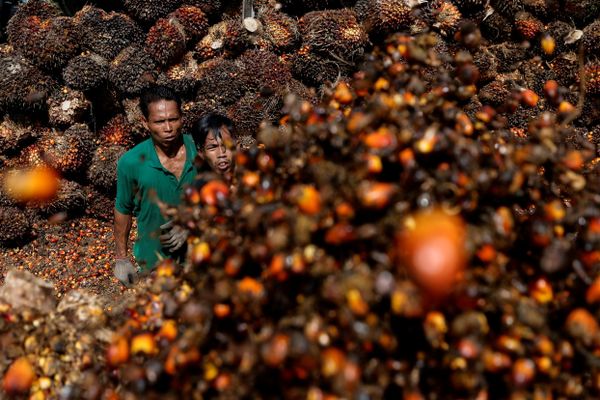JAKARTA — Indonesia's palm oil industry and farmer groups have urged the government to reduce export costs, to offset the impact of market distortion caused by the 32 per cent United States (US) reciprocal tariffs on Indonesia's exports.
Palm smallholders' group SPKS called on the government to lower costs by removing an export tax and levy, saying the US tariff would result in an up to three per cent fall in the price farmers receive for fresh palm fruit bunches.
"SPKS estimated President Trump's tariffs will distort demand for crude palm oil and palm oil products.
"The drop in prices at farmers' level could be offset by the reduction of export tax and levy down to zero per cent to help stabilise prices of palm fruits," the group's chairman Sabarudin said in a statement today.
Indonesia collects a total of US$196 (RM881.30) per metric ton export tax and levy on crude palm oil shipments
Yesterday, the government said it would adjust its palm oil export tax, which should reduce the burden of the US tariffs on exporters "by an equivalent of five per cent."
While the SPKS urged reducing the costs to zero, Indonesia's largest palm oil group GAPKI said it is waiting to see what the impact of the reduction will be on costs, said the group chairman Eddy Martono.
Domestic market obligations and the palm oil export tax and levy currently increase the costs for Indonesian palm oil exporters by US$221 (RM993.72) per tonne.
That compared to an estimated US$140 (RM629.51) per tonne export cost borne by rival Malaysian exporters.
Following the US tariffs, GAPKI said it has proposed a US$100 (RM449.65) per ton cost reduction for shipments specifically to the US to maintain competitiveness against exports from Malaysia.
"If it is not competitive yet, we will talk to the government .. We are not asking this for all export markets, just for this one country," Martono said.
The US, Indonesia's fourth-largest palm oil export market, accounted for about seven per cent of palm oil export volume and revenue in 2023.
— Reuters




